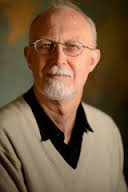Transition outcomes and their Implications
Short summary of Professor Roland Fletcher’s third online lecture at UrbNet.

By Postdoc Emanuele Ettore Intagliata.
On Wednesday 1 December 2021, Professor Roland Fletcher (University of Sydney) gave his third and last lecture in the online UrbNet lecture series ‘The Archaeological Implications of the Interaction-Communication Matrix: an appraisal of material prerequisites, settlement trajectories and transition outcomes’.
Roland Fletcher’s third lecture was titled ‘Transition outcomes and their Implications’. The lecture focused on transitions of both compact and dispersed settlements in the interaction communication matrix. Starting from the Pre-Pottery Neolithic, Roland Fletcher demonstrated the complexity but also, in some cases, predictability of settlement trajectories and their rate of transformation over the course of history.
This focus on past transitions provided the background to think about how contemporary cities will change in the not-so-distance future. Most of the material prerequisites for the next transition can already be discerned in embryo in our society (for example, 3D printing). Since the I-C matrix does not show connection between the successive low-density settlements across past transitions, it is possible that, in the next transition, current dispersed settlement will cease to exist and new form of human agglomerations and urban networks will develop.
In the Q&A session, discussion centred around the role of human conflicts and tragedies in the I-C matrix, future demography, and novel approaches to the study of urbanism (for example, urban soundscapes).
